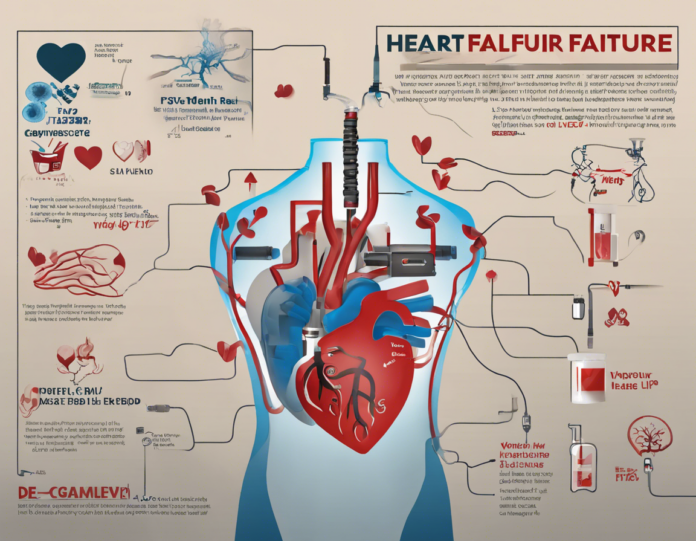Introduction:
With the surge in popularity of vaping as a supposedly safer alternative to traditional cigarettes, concerns have been growing regarding the potential health risks associated with e-cigarettes. Recent studies have increasingly linked vaping to heart failure risk, shedding light on the detrimental effects it can have on cardiovascular health. This article explores the connection between vaping and heart failure, delving into the underlying mechanisms, the latest research findings, and the implications for public health.
Understanding Vaping and its Popularity:
Vaping, the act of inhaling and exhaling aerosol produced by an e-cigarette or similar device, has gained traction in recent years, especially among young adults and former cigarette smokers. It is often marketed as a safer alternative to smoking, with claims that it eliminates many of the harmful chemicals found in tobacco smoke. However, the long-term health effects of vaping are still being studied, with growing evidence suggesting that it may not be as harmless as initially thought.
The Link Between Vaping and Heart Failure:
Recent studies have raised concerns about the impact of vaping on cardiovascular health, with a particular focus on its association with heart failure. Heart failure occurs when the heart is unable to pump enough blood to meet the body’s needs, leading to symptoms such as shortness of breath, fatigue, and swelling in the legs. Research has shown that the chemicals present in e-cigarettes can have harmful effects on the heart, potentially increasing the risk of heart failure.
Mechanisms of Harm:
Nicotine, a key ingredient in many e-cigarettes, is known to constrict blood vessels, raise blood pressure, and increase heart rate, all of which can strain the heart over time. In addition, the flavorings and other additives used in e-liquids have been shown to cause inflammation and oxidative stress in the body, further compromising cardiovascular health. These combined effects can contribute to the development of heart failure and other heart-related complications.
Research Findings:
A study published in the Journal of the American Heart Association found that daily vapers were nearly twice as likely to experience a heart attack compared to non-users, even after adjusting for other risk factors such as smoking and obesity. Another study by the American College of Cardiology highlighted the impact of vaping on endothelial function, which plays a crucial role in maintaining healthy blood vessels and overall heart health. These findings underscore the need for further research into the long-term consequences of vaping on cardiovascular health.
Implications for Public Health:
The growing body of evidence linking vaping to heart failure risk has significant implications for public health policies and education efforts. Regulatory measures aimed at curbing the use of e-cigarettes among young people, such as flavor bans and age restrictions, are essential to prevent a new generation from falling victim to the harmful effects of vaping. Healthcare providers should also be vigilant in discussing the risks of vaping with their patients, especially those with pre-existing heart conditions or risk factors for cardiovascular disease.
Conclusion:
In conclusion, the link between vaping and heart failure risk is becoming increasingly apparent, highlighting the need for greater awareness and regulation of e-cigarette use. While more research is needed to fully understand the mechanisms by which vaping affects cardiovascular health, current evidence suggests that it poses a significant threat to heart function. By taking proactive measures to address this issue, we can protect the public from the harmful consequences of vaping and safeguard heart health for future generations.
FAQs:
- Is vaping safer than smoking traditional cigarettes?
-
While vaping may eliminate some of the harmful chemicals found in tobacco smoke, it is not without risks, particularly when it comes to cardiovascular health. Both vaping and smoking pose dangers to heart function, albeit through different mechanisms.
-
Can vaping lead to heart failure?
-
Research indicates that vaping can increase the risk of heart failure, primarily due to the effects of nicotine and other chemicals on the cardiovascular system. Regular use of e-cigarettes has been associated with a higher likelihood of experiencing heart-related complications.
-
How does nicotine in e-cigarettes affect the heart?
-
Nicotine constricts blood vessels, raises blood pressure, and increases heart rate, putting additional strain on the heart muscle and potentially leading to adverse cardiovascular outcomes like heart failure.
-
Are there any safe alternatives to vaping for individuals trying to quit smoking?
-
Behavioral counseling, nicotine replacement therapy, and FDA-approved medications are considered safer and more effective options for smoking cessation compared to vaping. These methods do not carry the same cardiovascular risks associated with e-cigarettes.
-
What should individuals do if they are currently using e-cigarettes and are concerned about their heart health?
- It is important for individuals using e-cigarettes to discuss their concerns with a healthcare provider. Physicians can provide guidance on quitting vaping, assess cardiovascular risk factors, and recommend appropriate interventions to protect heart health.


Recent comments